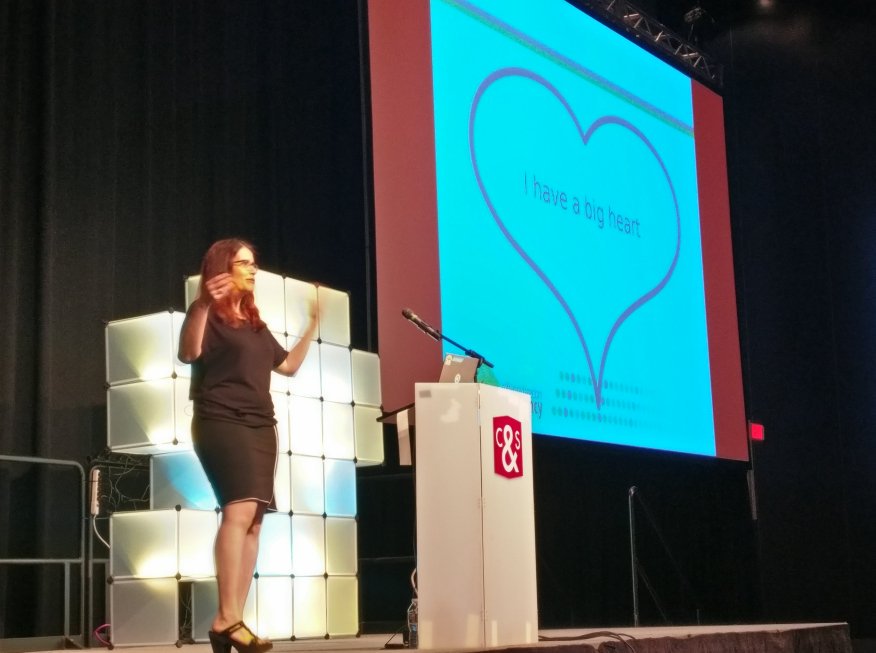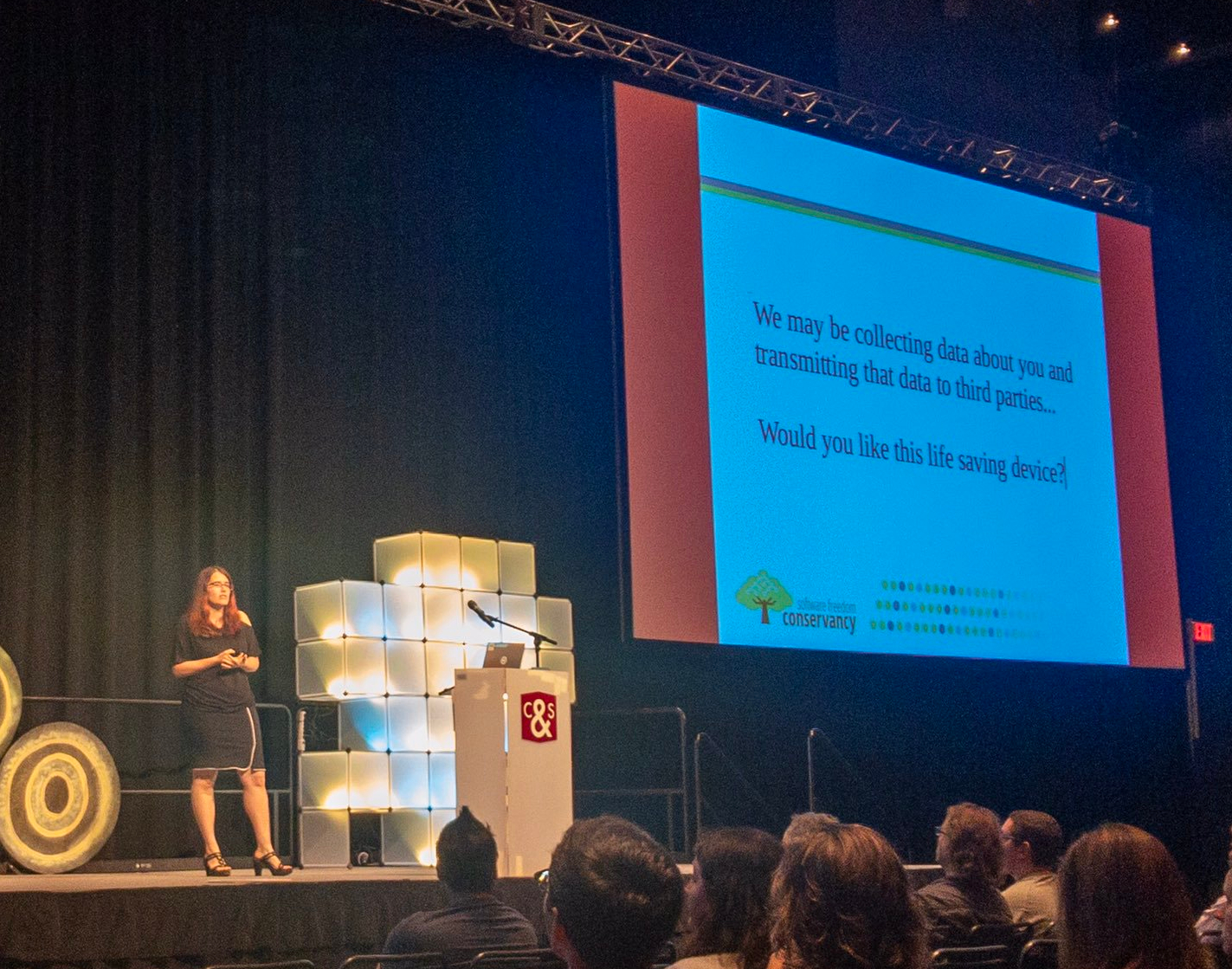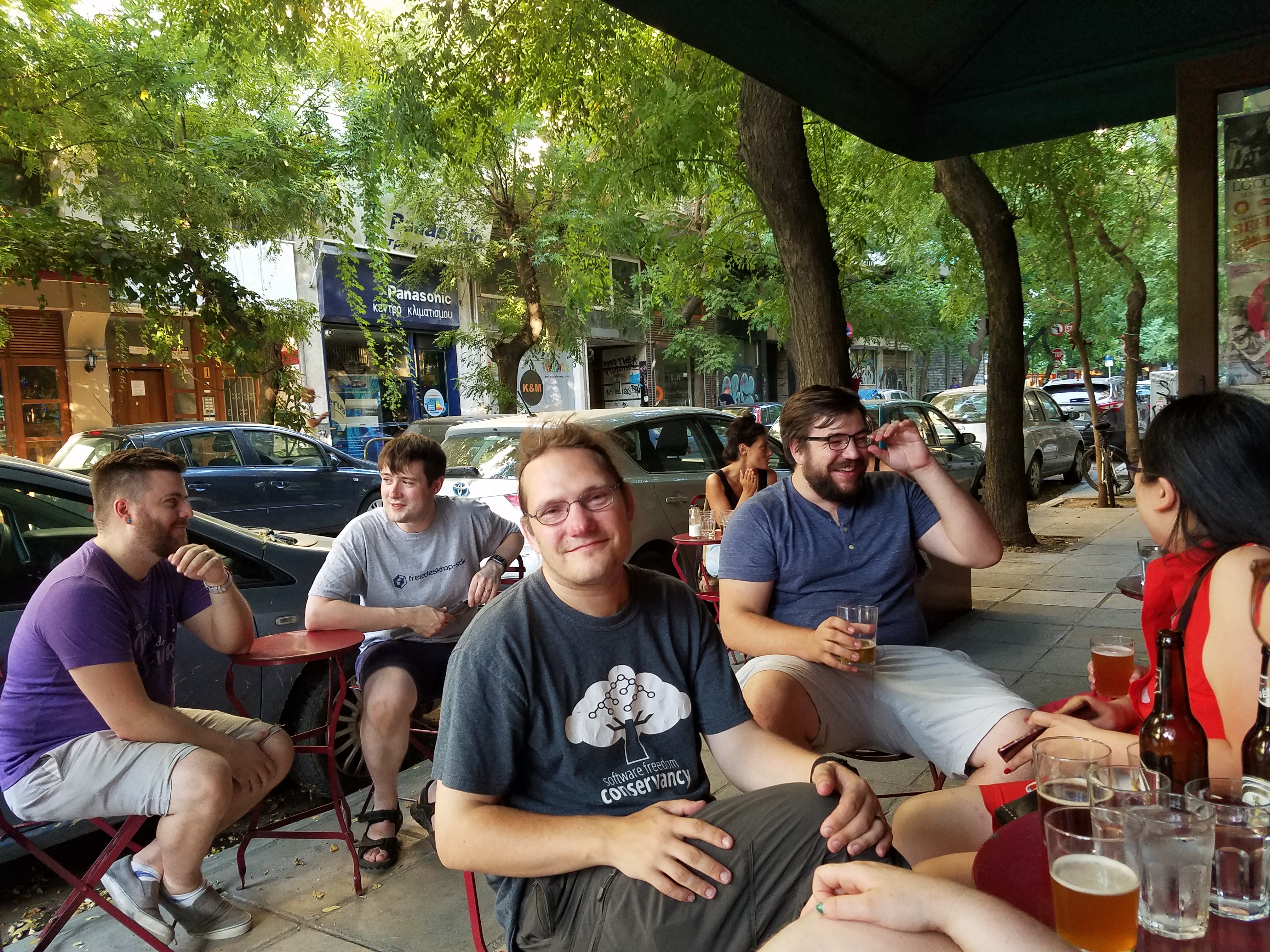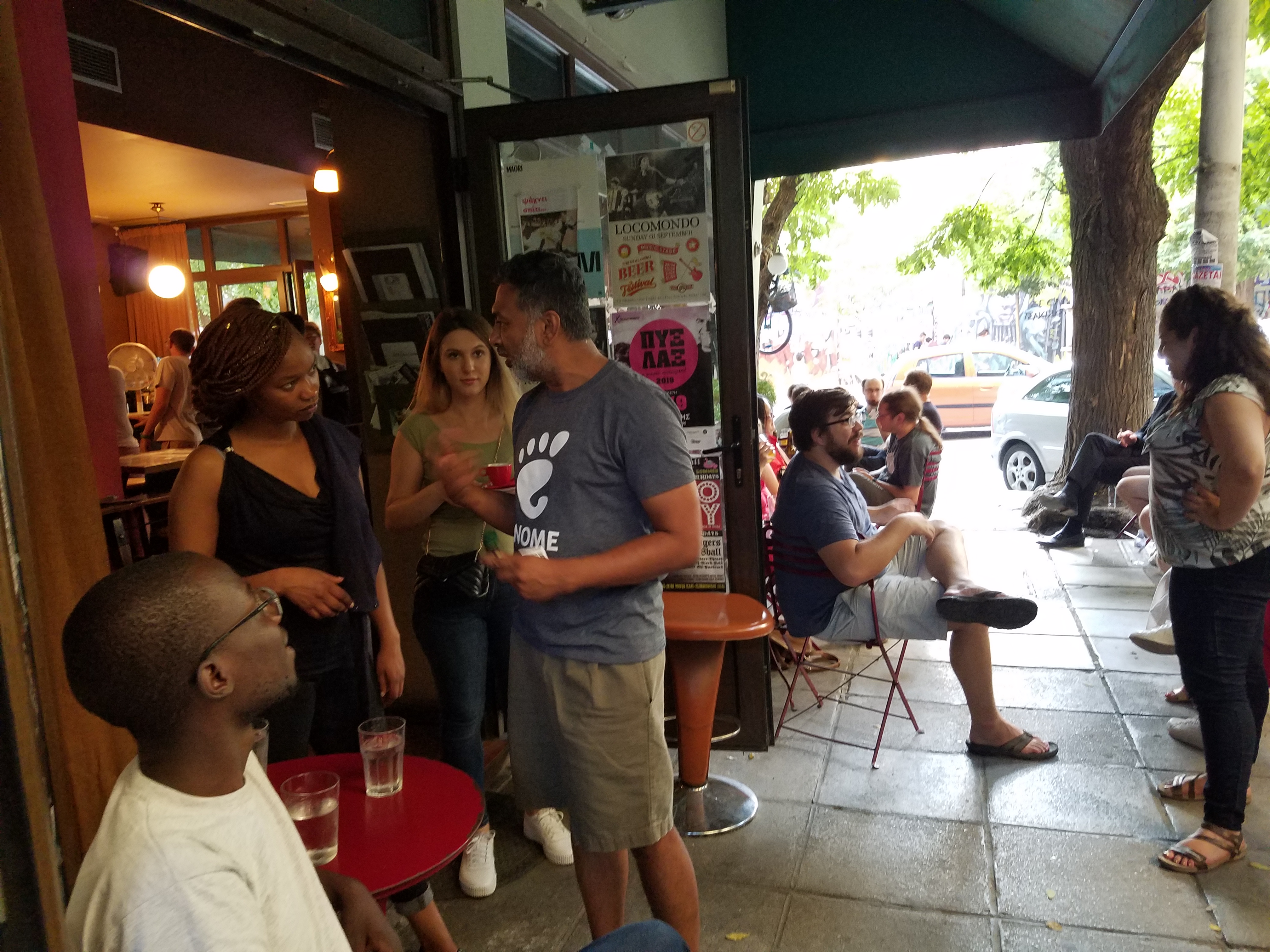![[RSS]](/static/img/feed-icon-14x14.2168a573d0d4.png) Conservancy Blog
Conservancy Blog
Coming to Your Town? We'd Love to See You!
by on October 11, 2019
Conservancy staff are on the road this month. Check and see if we're coming to your town!
WineConf in Toronto, Canada
Karen will keynote WineConf, please say hello if you're there.
All Things Open in Raleigh, NC
Deb will be at All Things Open on October 14th and 15th. We're having a Supporters event on Tuesday night at 8pm, at Humble Pie in downtown Raleigh.
LISA in Portland, OR
Conservancy has booth 12 at the Portland Marriott Downtown Waterfront, during LISA -- taking place October 28 and 29. We could use your help between noon and 7pm on Monday the 28th and from 10am to 2pm on Tuesday the 29th.
If you can help with the booth at LISA please email us -- we'd really appreciate it!
When companies use the GPL against each other, our community loses
by on October 2, 2019
Our Executive Director, Karen Sandler, has warned for years about the dangers of lawsuits between two for-profit companies engaged in a legal dispute in which the GPL is tangentially featured. Unlike Conservancy, companies don't use legal action as the last resort, and they don't select their cases, as we do, focused on what's best for the software freedom of users. Nevertheless, these cases happen, and the GPL gets caught in the crossfire. With the assistance of our legal counsel, Pam Chestek, Conservancy has been carefully following the case of Ubiquiti Networks, Inc. v. Cambium Networks, Inc.
Cambium and Ubiquiti have been engaged in this lawsuit with each other for a little over a year now. Ubiquiti sued Cambium, claiming that Cambium violated RICO, the Computer Fraud and Abuse Act, the Digitial Millennium Copyright Act, and the Copyright Act, along with other causes of action. Cambium responded alleging that the Ubiquiti products included code under the GNU General Public Licenses and Cambium's own use of the portions of the Ubiquiti code subject to the GPL would not be an infringement. The case is still in very early stages.
As experts in GPL compliance, we carefully investigated the situation with each company. Ubiquiti was already known to us as we had received independent GPL violation reports from the public regarding their behavior. (The suit itself brought Cambium to our attention.) We have found that neither company complies properly with the GPL. Specifically, in our analysis of the facts, we have found that both Cambium and Ubiquiti fail to provide any source code for their respective routers and access points, even when we repeatedly asked over the course of several weeks, starting more than 30 days ago. This is not an issue of incomplete source or partial source; we have received no source code at all to review. Furthermore, even if we do receive some source code, the firmware images currently available indicate that there may be additional serious, overarching GPL compliance problems that are not easily resolved.
As for-profit GPL violators, these companies financially benefit from GPL non-compliance by for-profit companies. Their litigation around GPL is a distraction from the bigger issue of companies' repeated violations of the GPL. We lament the irony that two companies have begun a fight regarding GPL compliance (and deployed immense legal resources in the process), yet neither complies with GPL's most basic provisions. Because of this, it's unlikely this suit will yield GPL compliance by either party, and makes the suit another example of how for-profit legal disputes inevitably fail to prioritize the software freedom of users. In essence, we believe their dispute is not about empowering their users with the ability to augment their devices by improving and upgrading the software on them, but rather is about who is able to keep more of their code proprietary.
Conservancy will not stand by while this occurs. As such, we have today opened (at this point, non-litigation) GPL enforcement actions against both companies. We are informing the public of this situation in this blog post, since we gave both companies the industry-accepted standard amount of time to comply, and since the two companies have already made their violations public through the lawsuit filings. We call on both companies to immediately comply with the requirements of Linux's license, GPLv2.
Karen Sandler keynoted State of the Map on Saturday 2019-09-21
by on September 20, 2019
Conservancy's Executive Director Karen Sandler delivered the keynote address on Saturday 2019-09-21 at the 2019 State of the Map Conference in Heidelberg, Baden-Württemberg, Germany. State of the Map is the annual conference for all mappers and OpenStreetMap users.
Karen's keynote was recorded and is available on the CCC media server!
Karen discussed her personal journey in software freedom, the challenges we all face maintaining lives of software freedom, and how that relates to the freedom of maps and navigation software.
Conservancy News Round-up August
by on September 11, 2019
Updates from many of our projects' departing summer interns, updates on what our contractors have been up to and pictures from recent events.

Picture is available under a CC.BY license and was taken by Sarah Withee

Picture is available under a CC.BY licenses and was taken by Zach Harris

Picture is available under a CC.BY.SA license and was taken by Deb Nicholson

Picture is available under a CC.BY.SA license and was taken by Deb Nicholson
Recent Videos and Pictures
Our Executive Director, Karen Sandler, is going to be part of an upcoming French documentary about the global fight for software freedom. The English version will be titled "Hackers For The Commons" and you can already check out the trailer (along with a fundraiser for the English version), right here. There are a few upcoming screenings scheduled of the French version.
Check out these two pictures from Karen's Abstractions talk last month! (top)
Deb held a "Supporters & Friends" event during GUADEC. Check out these nice pictures of folks talking about software freedom in Thessaloniki! (below)Upcoming talks from staff
Bradley is keynoting the 8th edition of Kernel Recipes in Paris on September 26 & 27. Conservancy is also this year's featured non-profit beneficiary. Registration opened this week.
Karen will be keynoting State of the Map in Heidelberg in September, on Saturday, September 21st.
Deb is speaking about "Selenium and Conservancy" at Selenium Conf this October.
Deb is also co-presenting with Nithya Ruff (the Head of Comcast’s Open Source Program Office) at All Things Open on "Companies and Communities: Why Can't We All Just Get Along?"
Interns are wrapping up for the summer
- Read this lovely wrap up from Niharika. titled: Last post!
- Plus this parting blog post from Priscillah, about her work on mUzima mobile.
- From Buildbot, Rajdeep Bharati reports on his Google Summer of Code work on MacPorts.
- Asami finishes his work adding QEMU/AArch64 Support to Coreboot
- A big omnibus report on Godot's eight GSoC students.
Also, applications are currently being accepted for the next round! Outreachy internships are remote, paid ($5,500 stipend), and last three months. Initial applications for the Dec 2019 to Mar 2020 internships are due on Sep 24 at 4pm UTC. Please help us reach folks who could benefit from an internship by sharing with your networks!
Conservancy contractors have been working hard
Lots happening at Reproducible Builds, including more work on diffoscope, new variations in their testing framework.
Over at phpMyAdmin, in addition to the intern that was sponsored directly through Conservancy, work focused on the request router and time with the Google Summer of Code interns who both wrapped up and reported on their work this summer, here and here.
Clojurists Together started work on four new projects. You can read about them all here.
Loads of fresh code!
- Wine 4.15 Released
- Git 2.23 Release Notes
- Boost Version 1.71.0
- Racket version 7.4 is now available
- You can try the new alpha Selenium IDE
- Lots of Linux XIA patches accepted
- QEMU version 4.1.0 released
- Twisted 19.7.0 Released
- Three new releases available from Evergreen!
- WebSocket updates, UDP multicast for Godot
- Samba 4.11.0rc3 Available for Download
- SWIG-4.0.1 released
Member Projects: Fall is for learning
- North Bay Python has tickets on sale now!
- Selenium Conf London also has tickets on sale now!
Thanks to Chris Lamby for promoting Conservancy with complimentary beer mats at the recent Debian BBQ!
Next page (older) » « Previous page (newer)
1 2 3 4 5 6 7 8 9 10 11 12 13 14 15 16 17 18 19 20 21 22 23 24 25 26 [27] 28 29 30 31 32 33 34 35 36 37 38 39 40 41 42 43 44 45 46 47 48 49 50 51 52 53 54 55 56 57 58 59 60 61 62 63 64 65 66 67 68
